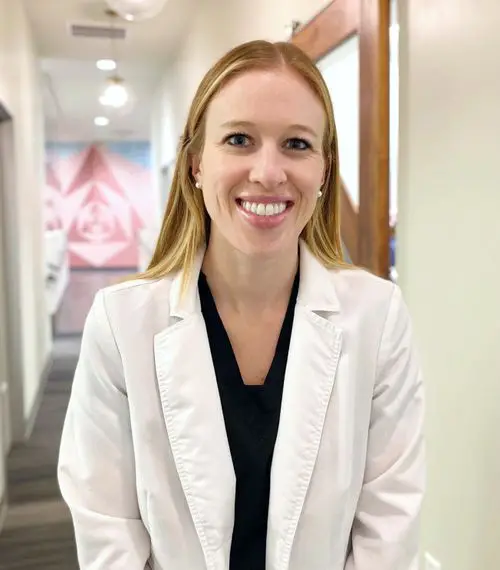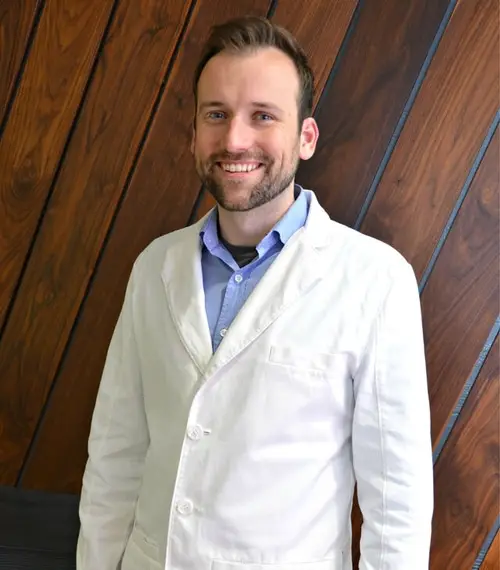Restorative Dentistry
Restorative dentistry is a branch of dental care focused on repairing and restoring damaged or missing teeth. Its primary goal is to restore the natural function and appearance of teeth, ensuring that patients can eat, speak, and smile with confidence. Restorative dentistry encompasses a variety of treatments, from simple fillings to complex procedures such as dental implants and full-mouth reconstruction.
Restorative Dentistry Treatments
- Dental Fillings
Dental fillings are among the most common restorative treatments used to repair teeth affected by cavities. When tooth decay occurs, the dentist removes the decayed portion of the tooth and fills the cavity with a restorative material. The choice of filling material depends on factors such as the location of the cavity, the extent of the decay, and patient preference.
Common filling materials include:
- Composite Resin: A tooth-colored material that blends in seamlessly with your natural teeth. Composite fillings are ideal for visible areas and provide a durable, aesthetic solution.
- Amalgam: A durable, silver-colored material made from a mixture of metals, including silver, mercury, tin, and copper. Amalgam fillings are commonly used for molars due to their strength and longevity.
- Ceramic: Made from porcelain, ceramic fillings are highly resistant to staining and are an excellent choice for both function and appearance.
- Dental Crowns
Dental crowns are used to restore teeth that are severely damaged or weakened, often due to decay, trauma, or large fillings. A crown covers the entire tooth, providing protection and strength while improving its appearance.
The process typically involves two visits:
- First Visit: Dr. Zeller will prepare the tooth by removing damaged or decayed portions and shaping it to fit the crown. Impressions of the tooth will be taken and sent to a dental laboratory where the custom crown will be fabricated.
- Second Visit: Once the crown is ready, it will be placed over the prepared tooth and cemented into position. Crowns can be made from various materials, including porcelain, metal, or a combination of both, depending on the tooth’s location and the patient’s needs.
- Dental Bridges
Dental bridges are used to replace one or more missing teeth. A bridge consists of one or more artificial teeth (pontics) anchored by dental crowns placed on adjacent teeth.
The procedure involves the following steps:
- Preparation: The adjacent teeth, known as abutment teeth, are prepared by removing a portion of their enamel to accommodate the crowns.
- Impressions: Impressions of the teeth are taken to create a custom bridge that fits comfortably and matches the natural teeth.
- Placement: The bridge is placed over the abutment teeth and cemented into position. Bridges can be made from materials such as porcelain, metal, or a combination of both.
- Dentures
Dentures are removable appliances used to replace missing teeth and restore function and appearance. They come in two main types:
- Complete Dentures: Designed to replace an entire arch of missing teeth, complete dentures are used when all teeth in the upper or lower jaw are missing. They are held in place by suction or adhesive.
- Partial Dentures: Used when only a few teeth are missing, partial dentures are attached to natural teeth with metal clasps or precision attachments. They can be removed for cleaning and maintenance.
Modern dentures are made from advanced materials that closely resemble natural teeth and gums, providing a comfortable and natural-looking solution for tooth loss. Call us to learn more.
- Dental Implants
Dental implants offer a permanent solution for replacing missing teeth. They consist of three main components:
- Implant Fixture: A titanium post surgically placed into the jawbone, serving as the root of the missing tooth.
- Abutment: A connector piece attached to the implant fixture that supports the crown or prosthetic tooth.
- Crown: A custom-made artificial tooth that is placed on top of the abutment to complete the restoration.
The implant process involves several stages:
- Initial Consultation: Dr. Zeller will evaluate your oral health and determine if you are a suitable candidate for implants. This may include taking X-rays or CT scans to assess bone density.
- Implant Placement: The implant fixture will be surgically placed into the jawbone. After placement, a healing period is required for the implant to integrate with the bone.
- Abutment and Crown Placement: Once the implant has integrated with the bone, the abutment and crown will be placed to complete the restoration. Dental implants offer a durable, natural-looking solution that mimics the function and appearance of natural teeth.
- Root Canals
Root canal therapy is a restorative procedure used to save a tooth that is severely infected or damaged. The treatment involves:
- Removing the Infection: Our dentist in Portland, OR, will access the tooth’s pulp chamber, remove the infected or damaged pulp, and clean the root canals.
- Filling and Sealing: The cleaned root canals will be filled with a biocompatible material to prevent future infection and sealed to restore the tooth’s structure.
- Restoration: After the root canal is complete, the tooth is usually restored with a dental crown to provide strength and protection. Root canal therapy can save a tooth that might otherwise need to be extracted, preserving its function and appearance.
- Full-Mouth Reconstruction
Full-mouth reconstruction is a comprehensive approach to restoring the function and aesthetics of the entire mouth. It is typically recommended for patients with extensive dental issues, such as severe decay, multiple missing teeth, or significant damage. The process involves a combination of restorative procedures tailored to the patient’s needs, including:
- Dental Implants: To replace missing teeth and restore function.
- Crowns and Bridges: To repair damaged teeth and replace missing ones.
- Dentures: To provide a complete solution for tooth loss.
- Orthodontics: To correct bite issues and alignment problems.
Full-mouth reconstruction requires careful planning and collaboration between the patient and Dr. Zeller. The goal is to create a customized treatment plan that addresses all aspects of oral health, resulting in a functional and aesthetically pleasing smile.
The Benefits of Restorative Dentistry
Restorative dentistry offers numerous benefits, including:
- Improved Function: Restorative treatments help restore the ability to chew, speak, and bite properly. This enhances overall comfort and quality of life.
- Enhanced Aesthetics: Restorative procedures can improve the appearance of damaged or missing teeth, resulting in a more attractive smile.
- Prevention of Further Issues: By addressing damaged or decayed teeth, restorative dentistry helps prevent more severe problems and potential tooth loss.
- Increased Confidence: Restoring damaged or missing teeth can boost self-esteem and confidence, allowing patients to smile and interact with others without hesitation.
Conclusion
Restorative dentistry is essential for maintaining optimal oral health and addressing issues such as tooth damage, decay, and loss. At Fives Pines Dental, Dr. Richard Zeller is dedicated to providing high-quality restorative treatments that enhance both function and aesthetics. From dental fillings and crowns to implants and full-mouth reconstruction, our comprehensive restorative services are designed to meet your individual needs and help you achieve a healthy, beautiful smile.
Experience exceptional dental care with Dr. Richard Zeller at Fives Pines Dental! Call us today at (503) 482-2160 to schedule your appointment and discover how our personalized approach can enhance your smile. Visit us at 555 SW Oak Street, Suite A, Portland, OR 97204, where your dental health is our top priority.
Office Hours
MON8:00 am - 5:00 pm
TUE8:00 am - 5:00 pm
WED7:00 am - 5:00 pm
THU7:00 am - 5:00 pm
FRI8:00 am - 5:00 pm
SATClosed
SUNClosed



